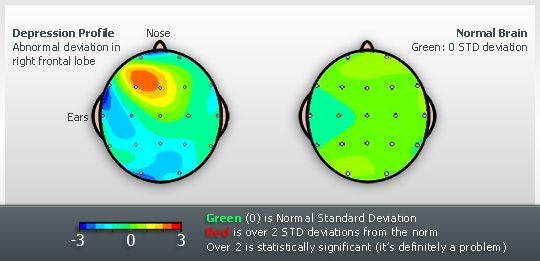Unlocking the Secrets of the Brain Through qEEG Cerebral Mapping in Psychological Health Evaluation
Unlocking the Secrets of the Brain Through qEEG Cerebral Mapping in Psychological Health Evaluation
Blog Article
Understanding the individual brain is a complex endeavor, particularly when it pertains to psychological health. Traditional methods of assessment often depend on conversations and questionnaires, which can sometimes miss crucial aspects about how the mind functions. This is where quantitative electroencephalography, or qEEG, enters into the picture. qEEG is a specific technique that measures neural signals in the brain. By analyzing these brainwaves, psychological health experts can gain valuable insights into a individual's mental condition, aiding to improve diagnosis and treatment.
qEEG functions by placing small sensors on the head to capture brain activity. These electrodes detect neural signals produced by neurons, the units in the cerebrum that interact with one another. The information collected is then analyzed and presented as a series of waveforms. Each kind of brainwave—such as α, β, delta, and theta—relates to various psychological states and activities. For instance, alpha waves are commonly linked with relaxation, while beta oscillations are associated to engaged cognition and issue resolution. By examining these patterns, healthcare providers can detect irregularities that may suggest psychological health issues.
One of the significant benefits of qEEG is its capability to offer unbiased information. Unlike traditional evaluations that rely on personal reports from clients, qEEG offers a clear view of brain activity. This objectivity can assist reduce prejudices in diagnosis and result to more accurate intervention plans. For instance, if a client is check it out experiencing stress, qEEG can reveal particular trends of brain function that are associated with stress conditions. This information enables mental health professionals to customize treatments more effectively, whether it be through therapy, medication, or alternative treatments.
Moreover, qEEG can be especially useful in monitoring intervention progress. By performing qEEG evaluations at different stages during treatment, clinicians can track variations in brain activity over period. This ongoing evaluation assists ascertain whether a treatment is working or if adjustments are needed. For example, if a client is not reacting to a particular medication, qEEG may indicate that their neural activity has not altered in a manner that indicates improvement. This response cycle can lead to more personalized and efficient psychological health treatment.
In conclusion, qEEG brain mapping is a potent instrument in the field of mental health evaluation. By offering unbiased data about brain function, it enhances the comprehension of different psychological health conditions. This technique not only assists in precise assessment but also helps in monitoring treatment success. As mental health professionals continue to investigate the capabilities of qEEG, it possesses potential for improving the lives of individuals dealing with psychological health issues. With continuous research and advancements in technology, the mysteries of the mind may become clearer, resulting to better results for those in requirement of assistance.